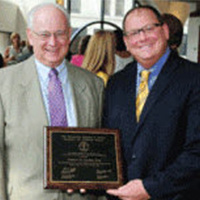Eden Juvenile Law Lawyer, New York
Sponsored Law Firm
-
 x
x

Click For More Info:
-
Cohen & Bernstein, L.L.C.
1360 Clifton Ave #309 Clifton, NJ 07012» view mapCriminal Defense We’re In this Together!
We work hand in hand with our clients to ensure all of your questions are answered and progress through your legal issue is seamless.
800-978-7341
Not enough matches for Eden Juvenile Law lawyer.
Below are all Eden Criminal lawyers.
Anthony M. Bruce
✓ VERIFIED *Status is reviewed annually. For latest information visit hereMr. Bruce’s legal career has focused on criminal litigation. For 37 years, Mr. Bruce worked as Assistant United States Attorney in the United State... (more)
Dominic Paul Candino
✓ VERIFIED *Status is reviewed annually. For latest information visit herePersonal injury and criminal law is a complex collection of ever-changing legislation and case law. Many of those injured by a third party's negligen... (more)
Paul Becker
✓ VERIFIED *Status is reviewed annually. For latest information visit herePaul B. Becker, Esq. is committed to providing you with top notch legal services. I approach every client with a focus on integrity, advocacy, and und... (more)
Frank Housh
FREE CONSULTATION
CONTACT Lindsay Bernstein Clifton, NJ
Lindsay Bernstein Clifton, NJ Practice AreasExpertise
Practice AreasExpertise


